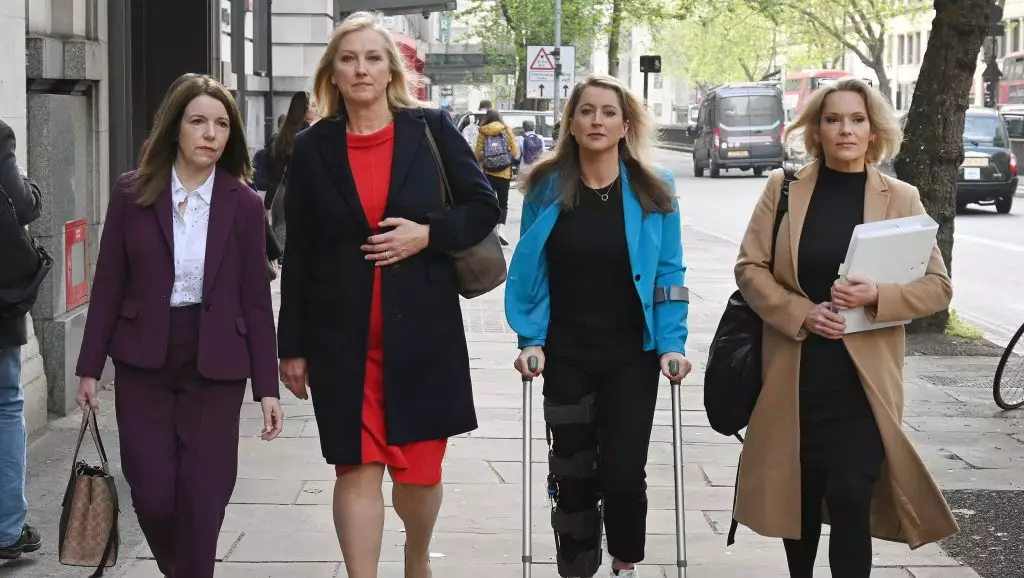Four female BBC News presenters, Martine Croxall, Karin Giannone, Kasia Madera, and Annita McVeigh, have taken legal action against the UK broadcaster, claiming that they were unfairly treated as a result of a “rigged” recruitment process. These seasoned anchors submitted witness statements alleging age and sex discrimination, equal pay concerns, and harassment following a hiring process for a chief presenter role in January 2023. They argued that management had already predetermined their preferred candidates before the process even began, leading to unfair treatment and negative impacts on their physical and mental health.
As a result of challenging the BBC hiring process, the four presenters claimed they were forced off air for a year, lost their jobs, faced demotions, and even experienced pay cuts. They brought forward reports from clinical psychologists to support their claims of mistreatment by the BBC. Despite the women’s allegations, the BBC stood by its recruitment process, stating that successful candidates were not guaranteed their roles prior to an open hiring procedure. The situation escalated when BBC director general Tim Davie became involved in the proceedings, with claims that he made insensitive comments to one of the presenters. This legal action represents a high-profile tribunal for the corporation, following a previous gender pay battle with another presenter in 2020.
During the preliminary hearing, the presenters gave evidence about equal pay claims and expressed their desire for these issues to be addressed in a full hearing possibly later in the year. They revealed that they had accepted a pay revision in 2020 after discovering discrepancies in pay for news channel chief presenters that were influenced by gender. Croxall mentioned that discrimination is ingrained in BBC pay structures and described the corporation as being oppressive during equal pay disputes. The women highlighted the importance of addressing these issues to ensure fair treatment and equal opportunities for all presenters at the BBC.
It is worth noting that a fifth presenter, Geeta Guru-Murthy, withdrew from the legal action on Wednesday, which could have implications for the ongoing proceedings. The withdrawal may have been due to various reasons, such as reaching a settlement with the BBC or deciding to pursue alternative avenues for addressing workplace issues. Despite this development, the remaining presenters continue to advocate for their rights and challenge the alleged unfair treatment they faced during the hiring process and subsequent actions taken by the BBC.
The legal action taken by these female BBC presenters sheds light on the challenges and inequalities that exist within the broadcaster’s recruitment and employment practices. It highlights the importance of addressing issues related to discrimination, unequal pay, and harassment in the workplace to create a fair and inclusive environment for all employees. The outcome of this legal action will not only impact the presenters involved but also set a precedent for how organizations handle similar complaints in the future. It is essential for the BBC and other companies to address these issues promptly and transparently to promote a culture of equality and respect in the workplace.

Leave a Reply